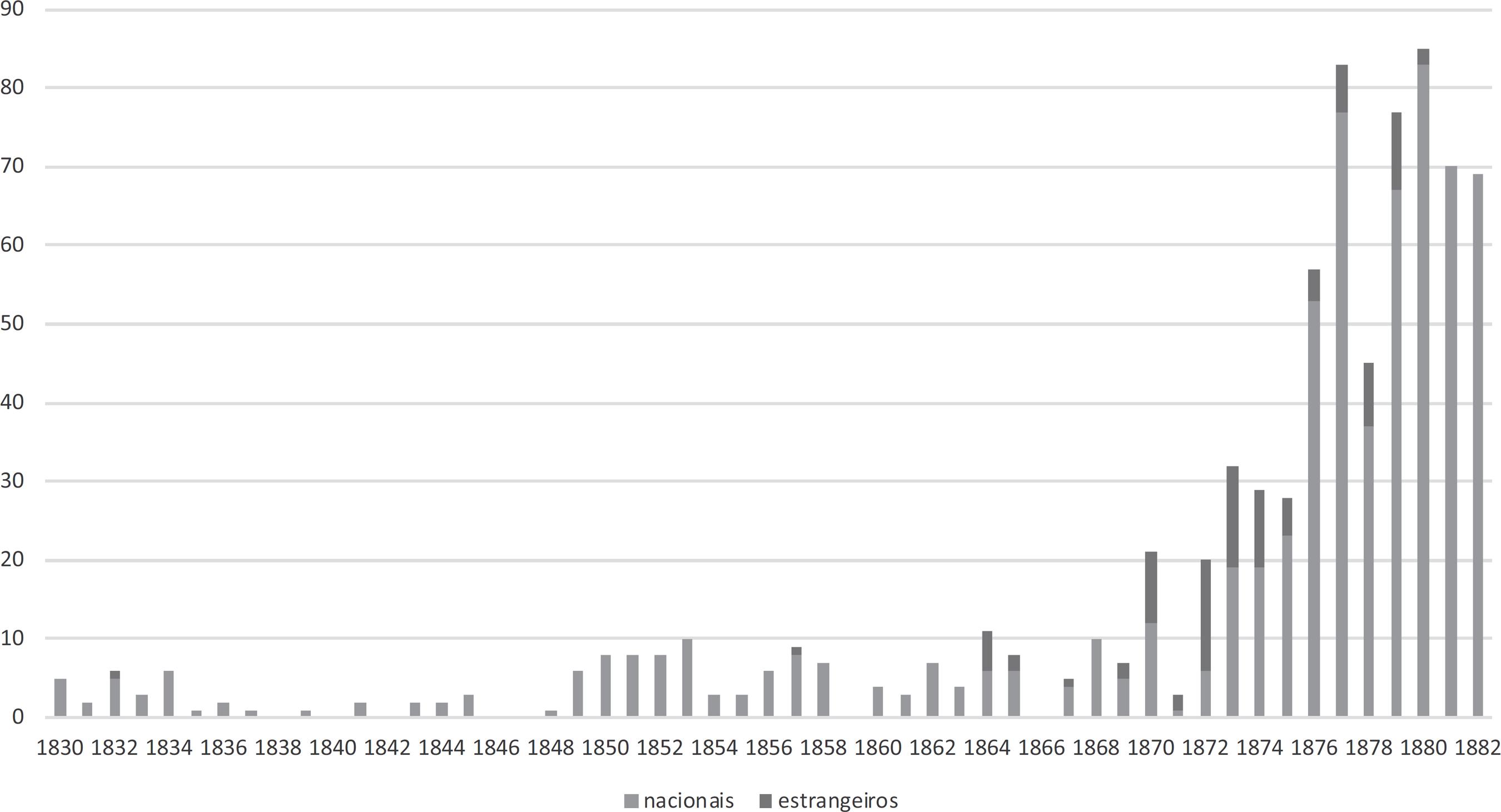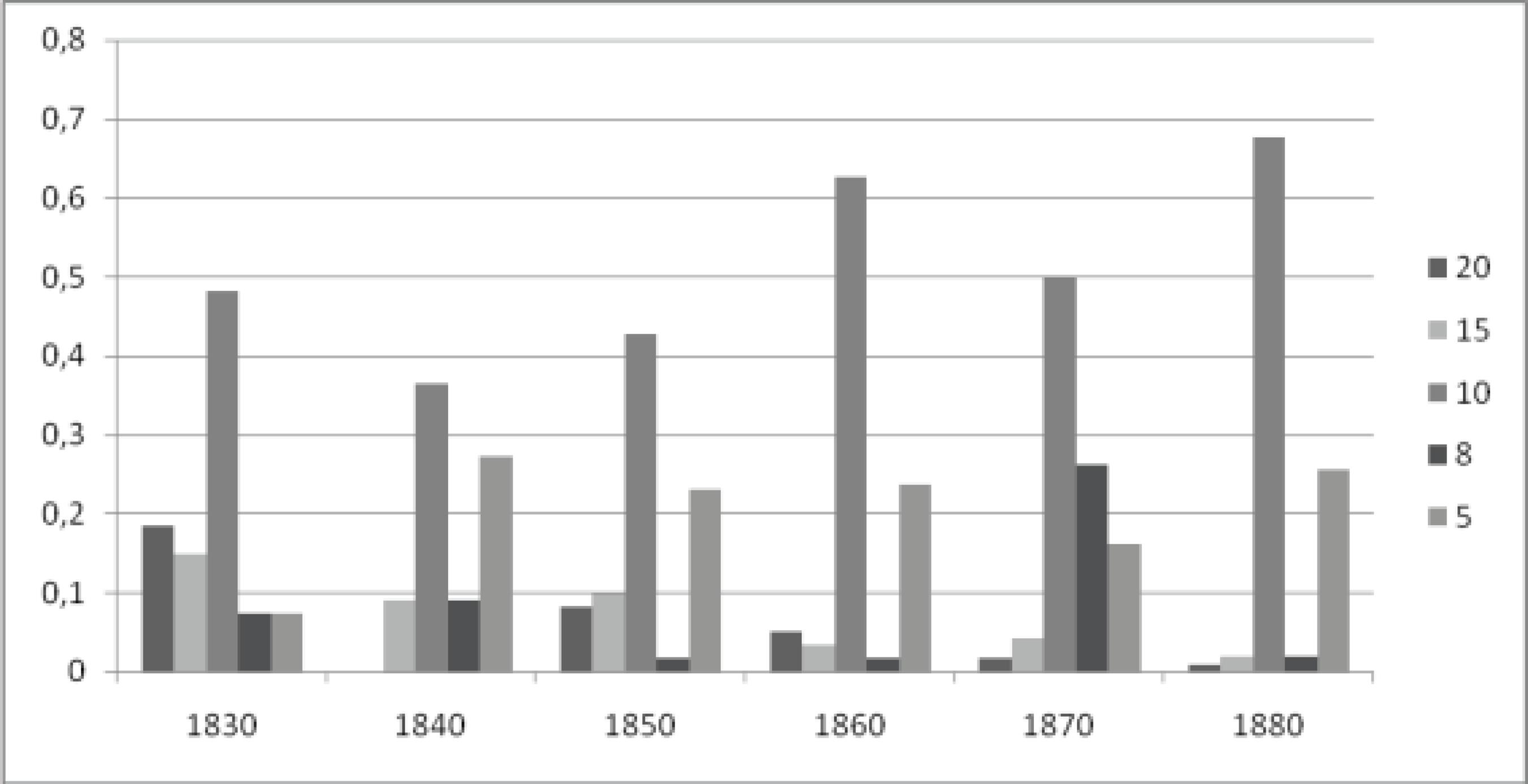Abstract
Brazil was one of the first countries to have a patent law and one of the only ones to grant patent length according to the quality of the invention. This paper analyzes an unpublished dataset with all the 783 industrial privileges granted under the first Brazilian patent law between 1830 and 1882. Our results show that inventive activity was linked to the economic and social structure of the time and that labor scarcity led to the invention of machines and equipment for the coffee sector. The number of patents only increased from 1870 and on, when economic conditions improved, showing how little can be achieved by a patent law in an economically stagnant environment. However, it was the least expensive mechanism to stimulate inventive activity in Brazil in the XIX century.
Keywords:
Patent law; Inventions; Law efficiency

 Fonte: Elaboração própria.
Fonte: Elaboração própria.
 Fonte: Elaboração própria
Fonte: Elaboração própria